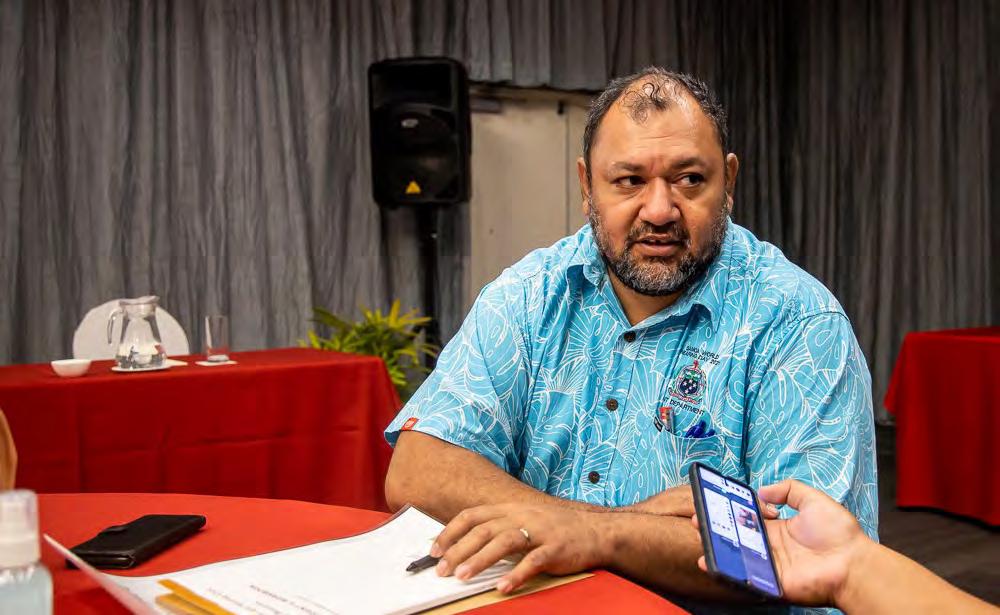
2 minute read
Capacity building in Samoa
The Primary Trauma Care Training courses aim to build capacity and establish local faculty that can be run by local providers
A training workshop to equip medical staff with knowledge and skills in Primary Trauma Care (PTC) was held in Samoa on 28 and 29 September 2021, with another planned for early February 2022. This was the fifth Primary Trauma Care training (PTC) held in Samoa since 2016. The Royal Australasian College of Surgeons (RACS) partners with the Australian College of Emergency Medicine (ACEM) and the Pacific Ministries of Health to coordinate and fund the delivery of these trainings across several Pacific Island countries under the Department of Foreign Affairs and Trade (DFAT) funded Pacific Island Program (PIP). The courses are designed to build the capacity and establish local faculty. The trainings can then be run independently by local providers. Dr Sione, one of the senior PTC faculty said, “It is our aim to develop our younger leaders to take over and sustain the PTC training in the future. We are grateful to have had the support to run the instructor’s course and two PTC courses in Upolu and Savaii for our frontline staff with prioritisation for Trainee interns and rural staff in district hospitals and health centres.” Six PTC faculty attended the instructor refresher training. They all assisted the senior trainers to deliver the two-day course to 20 participants, including nurses, interns, and registrars. Dr Sione said the training was well received and that they felt much more confident in their skills to manage trauma patients. Trauma is gradually becoming a large cause of death and disability in many countries, especially in the developing world.
Advertisement
Dr Sione said, “Low- and middleincome countries like Samoa often have difficulties with the early management of patients with trauma injuries as they have to travel great distances to receive care. This means by the time patients get to the hospital they haven’t had a proper assessment or any initial management procedures. This is often due to low numbers of health professionals with appropriate training.” The World Health Organisation’s Global Burden of Disease points out that 1.3 million people die each year due to road traffic injuries. Global Burden of Disease is defined by the WHO as ‘impact of a health problem on an area measured by financial cost, mortality, morbidity, or other factors’. In the most recent audit (2014), 730 trauma patients* were admitted to Tupua Tamasese Meaole Hospital in Apia, Samoa. Out of the total, 11 per cent were related to road traffic accidents, 43 per cent to falls, and about half of the total cases were related to assault injuries, natural disasters, and suicides. There is a great demand for trauma management and the need for ongoing training of medical professionals and first responders—police, paramedics etc.—in providing effective assessments and timely appropriate management in limited resource environments.
Dr Sione and his team plan to run a second course in February 2022 and are also working with the National University of Samoa to provide the course to students at the School of Medicine. *Source: Ms. Lora Su’a of medical records










